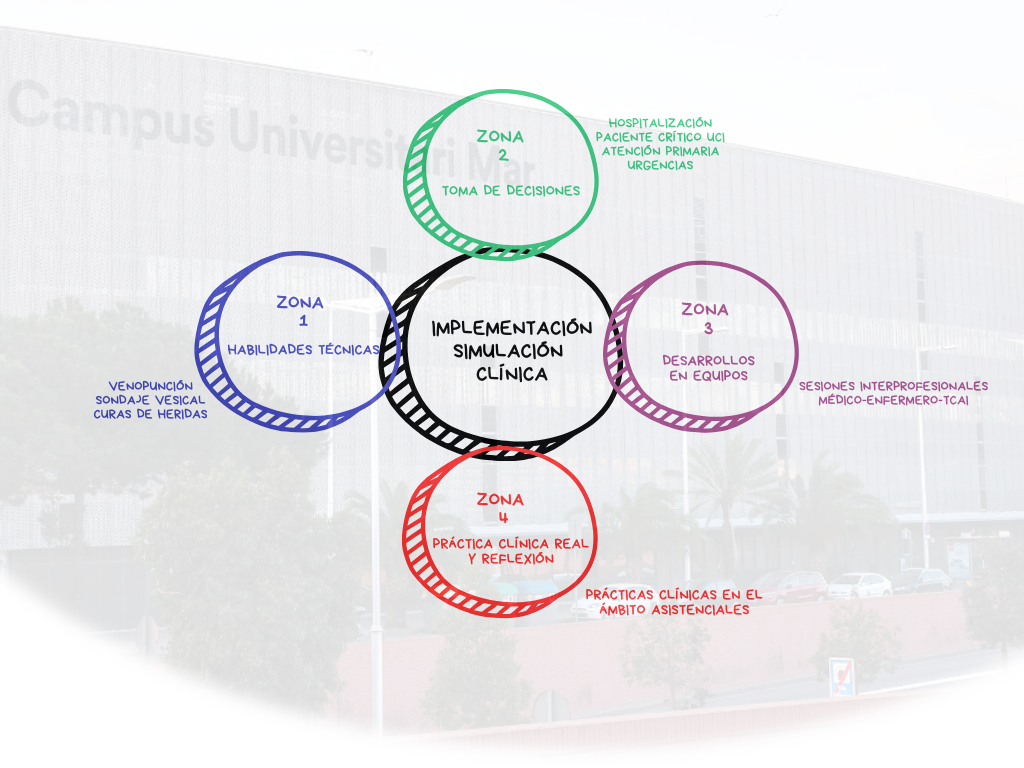ESIHMar's Simulation - Overview

Clinical simulation at ESIHMar: SimZones model
The Higher School of Nursing at Hospital del Mar uses clinical simulation as a teaching-learning methodology for the acquisition, development, and evaluation of professional competencies.
The model on which the learning facilitators, experts in this methodology at ESIHMar, are based is the SimZones model described by Roussin and Weinstock (2017).

Simulation vs. Clinical Skills
Unlike the traditional clinical skills training model, in the clinical simulation methodology:
- The sessions are led by nurses trained in simulation methodology and by experts in the specific nursing field being addressed during the session. These professionals act as learning facilitators and are trained in debriefing techniques to help students uncover the beliefs, assumptions, values, and judgements that guide their actions, share them, and initiate positive change.
- The spaces, materials, and debriefing approach are adapted to the formulated learning objectives.
- The objectives focus on developing the group as a team and understanding the behaviour of its members, not just on acquiring technical skills.
- Technology serves as a tool to enable the clinical moment and the team's engagement in a specific situation, which transcends mere practice or transfer to reality.
Methodologies
Spaces
The Campus Universitari Mar offers realistically equipped spaces simulating hospital rooms, an Intensive Care Unit (ICU) bay, a Primary Care (PC) consultation room, and a multipurpose area that can replicate the interior of a home, an ambulance, or any other care setting. These spaces are designed to be safe environments for students, free from risk, where they can practice and develop the necessary skills and competencies for professional practice. The facilities are fully equipped, and simulated patients are either robotic mannequins or professional actors, chosen according to the educational objectives.
Benefits of Simulation
Benefits for Students: The SimZones model allows for greater confidence in their professional role, trust in their abilities, and competence in performing clinical tasks appropriately, carrying out clinical reasoning, communicating with the team, the patient, or their family, working as a team, and making decisions, among others.
Benefits for Learning Facilitators: The SimZones model provides opportunities to learn how to be a learning facilitator and generate unique experiences outside of the hierarchical expert-student role; it offers rewards due to the high level of satisfaction among students using the methodology; and it presents opportunities for professional growth, advancement, development of leadership skills, and professional recognition.
Institutional Benefits: The SimZones model fosters a culture of learning and manages the training and development of teaching staff in the use of simulation; it enables the creation of student groups and their mixing to ensure learning; it offers training experiences and the achievement of expertise in technical skills (single loop) and challenges assumptions, values, and cultural norms that guide actions (double loop) with limited resources, organizes simulation research, and measures return on investment.


